MercoPress. South Atlantic News Agency
Stories for November 24th 2010
-
Wednesday, November 24th 2010 - 15:36 UTC
IMF insists Europe needs “far-reaching” reforms to safeguard the “social model”
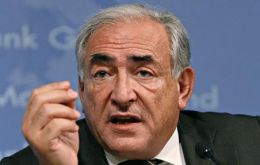
Europe needs collaborative and far-reaching reforms to restore strong and balanced growth across the region and safeguard the European social model, the head of the International Monetary Fund Dominique Strauss-Kahn told bankers and officials in Frankfurt.
-
Wednesday, November 24th 2010 - 05:28 UTC
Lula da Silva not interested in Unasur secretary general post

Brazilian president Lula da Silva has no plans or intentions of becoming the next secretary general of Unasur, Union of South American Nations said his spokesperson Marcelo Baumbach who discarded all speculations related to the issue.
-
Wednesday, November 24th 2010 - 05:26 UTC
Brazil promises FIFA “peace and tranquillity” for the 2014 World Cup
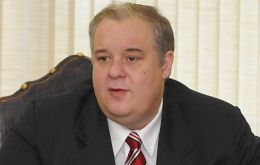
The Brazilian government has assured FIFA officials that the 2014 World Cup will be a success, promising football's governing body “peace and tranquillity”.
-
Wednesday, November 24th 2010 - 05:19 UTC
EU and IMF are demanding more austerity and reforms from Greece

EU and IMF auditors cleared a new slice of rescue funding for Greece on Tuesday but demanded more austerity action while acknowledging that the country faced potential strains in repaying on time.
-
Wednesday, November 24th 2010 - 05:17 UTC
Emergency loans to Ireland total 85 b Euros, conditioned to draconian budget cuts
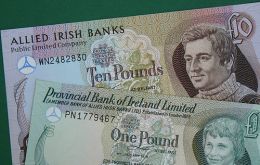
EU and IMF have extended 85bn Euros of emergency loans to the Republic of Ireland, according to reports on Irish state television. The widely anticipated bail-out package comes after a day of sharp falls in global share prices and the Euro.
-
Wednesday, November 24th 2010 - 05:11 UTC
Brazilian ambassador “mistreated” by Argentine official on trade issues
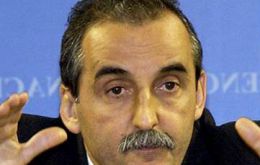
The Brazilian financial newspaper Valor Economico claims Argentine Domestic Trade Secretary Guillermo Moreno “mistreated” Brazilian ambassador in Buenos Aires Enio Cordeiro following a discussion on alleged “informal” obstacles that the Cristina Fernández government is planning to apply on Brazilian imports.
-
Wednesday, November 24th 2010 - 02:56 UTC
Ample support for democracy in Uruguay and Argentina; much less in Peru

Peru is the country with less citizen support for democracy in the Americas while in Uruguay, Costa Rica and Argentina the system enjoys massive approval.
-
Wednesday, November 24th 2010 - 00:57 UTC
Spain feeling Irish contagion: extra yield on bonds hits Euro-area high
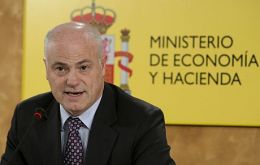
Spain said it doesn’t need to adopt further austerity measures to stem a surge in borrowing costs as the central government’s budget gap narrowed by almost half.
-
Wednesday, November 24th 2010 - 00:54 UTC
The Fed cuts US economy growth estimate for 2011 and ups unemployment

The Federal Reserve has cut its 2011 growth forecast for the US economy, newly released minutes of its last policy committee meeting reveal. The Fed expects growth of 3-3.6% next year, down from its previous 3.5-4.2% estimate. It also forecasts higher unemployment and lower inflation than before.
-
Wednesday, November 24th 2010 - 00:51 UTC
Currency appreciation pressures inevitable until US controls budget deficit
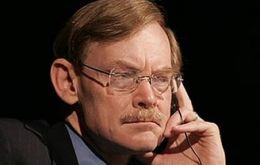
Fast-growing emerging markets would be facing currency appreciation pressures even without the US quantitative easing policy, World Bank President Robert Zoellick said in an interview on Tuesday.
